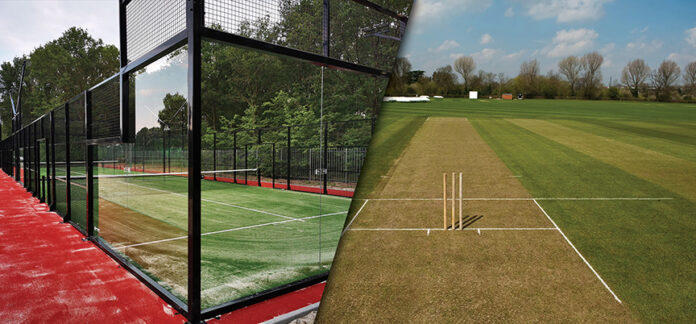In Pakistan, cricket is not just a sport, it is a rite of passage. From the streets of Karachi under a scorching sun to the narrow alleys of Lahore, cricket is played with fervor. The thud of a taped tennis ball bouncing off a cracked street corner characterises the childhood of many Pakistanis. On any given afternoon, you’ll find children wielding makeshift bats carved from broken furniture, wickets fashioned out of soda crates, and an entire match orchestrated in the dusty streets of a neighborhood. No stadiums, no fees, no formalities. Just a ball, a bat, and a group of eager players, often interrupted by passing cars. All you need is a handful of friends, and you’re in the game.
It’s a sport that thrives on improvisation and community spirit. It’s a social equaliser and a weekend ritual.
Now, enter padel tennis, a sport many in Pakistan had never even heard of until three years ago. Suddenly, in cities like Karachi, Islamabad, and Lahore, gleaming new padel courts have cropped up behind cafes, in private clubs, and inside upscale fitness centers. Padel, a fusion of tennis and squash, is the new kid on the block, dressed in premium athleisure and promising a fresh, fast-paced experience. It’s smaller in scale and simpler in rules compared to tennis, but don’t be fooled, playing it requires access to a state-of-the-art enclosed court, the right equipment, and often, a hefty wallet.
And here’s the irony: despite being branded as a “social sport,” padel is far less accessible than cricket. You cannot just improvise with makeshift gear and have a match on the street outside your house. The content in this publication is expensive to produce. But unlike other journalistic outfits, business publications have to cover the very organizations that directly give them advertisements. Hence, this large source of revenue, which is the lifeblood of other media houses, is severely compromised on account of Profit’s no-compromise policy when it comes to our reporting. No wonder, Profit has lost multiple ad deals, worth tens of millions of rupees, due to stories that held big businesses to account. Hence, for our work to continue unfettered, it must be supported by discerning readers who know the value of quality business journalism, not just for the economy but for the society as a whole.To read the full article, subscribe and support independent business journalism in Pakistan

























